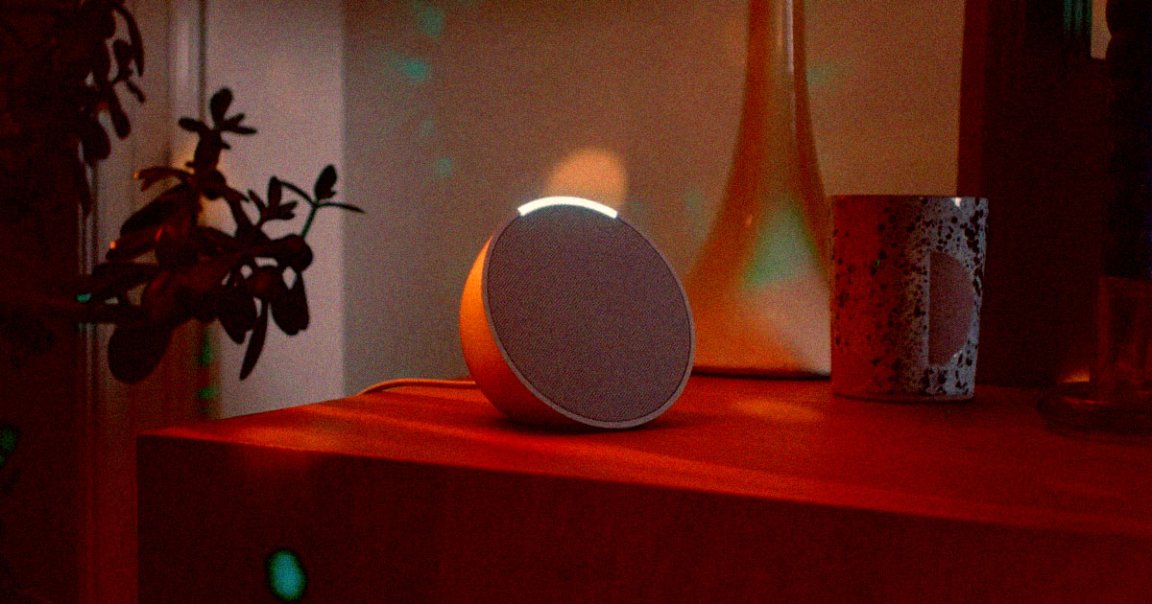
Amazon is still hard at work in its efforts to realize an AI-powered Alexa digital assistant.
As the Financial Times reports, the tech giant still has to sort out “several technical hurdles” before rolling out the long-awaited feature. One of them, according to Amazon AI team lead Rohit Prasad, is solving the pesky issue of “hallucinations” — an industry term denoting the non-factual hallucinations that large language models often spit out, to the chagrin of many companies attempting to commercialize the tech.
“Hallucinations have to be close to zero,” Prasad told the FT.
The issue? That’s far easier said than done. Despite billions of dollars of investment and the construction of massive data centers to power increasingly complex AI models, even the most advanced chatbots still have a strong tendency to “hallucinate” false claims.
Some experts have long argued that the issue might be intrinsic to the tech itself. In other words, hallucinations may always be a part of the equation — an unfortunate reality that tech companies are unlikely to admit, especially in the face of all of generative AI’s buzz right now.
“They’re really just sort of designed to predict the next word,” Anthropic cofounder and president Daniela Amodei told the Associated Press back in 2023. “And so there will be some rate at which the model does that inaccurately.”
Meanwhile, tech companies that have invested astronomical sums in the tech’s development are attempting to sweep the topic of hallucinations under the rug, insisting that it’s only a matter of time until the issue is solved.
Some companies, like Microsoft, believe that more AI could be the answer. The company unveiled a tool last year that uses AI to evaluate the outputs of other models, though experts have warned that the strategy may be inherently flawed.
“Trying to eliminate hallucinations from generative AI is like trying to eliminate hydrogen from water,” University of Washington PhD candidate Os Keyes told TechCrunch last year. “It’s an essential component of how the technology works.”
Amazon is several years behind the competition when it comes to releasing a generative AI-powered personal assistant. That’s despite having worked on an Alexa redesign since late 2022, according to the FT.
The long delay highlights just how difficult it is to overcome the issue of hallucinations — if it’s indeed possible.
So far, Alexa’s capabilities remain severely limited compared to AI chatbots like ChatGPT, only helping users with simple tasks like changing the music or starting timers.
Making matters even more difficult is the fact that keeping AI assistants running while getting “billions of requests a week,” according to Prasad, can become extremely expensive due to the tech’s power-hungry and highly energy-inefficient nature.
That means turning the assistant into a money maker, even with a rumored $10 monthly subscription fee, could prove difficult.
And it’s not just Amazon. Apple’s Siri home assistant is also set to get an AI-powered revamp. But the tech giant is giving itself until 2026 to release it, and in the meantime, Apple had to halt an AI news summary feature this week after it consistently spread hallucinated fake news to millions of iPhone users for over a month.
The stakes are high for the likes of Amazon and Apple: unleashing a hallucinating assistant inside your home and giving it access to data from other internet-connected devices, such as smart doorbells or security cameras, could prove disastrous.
More on Alexa: Amazon Horrified by What People Actually Use Alexa For